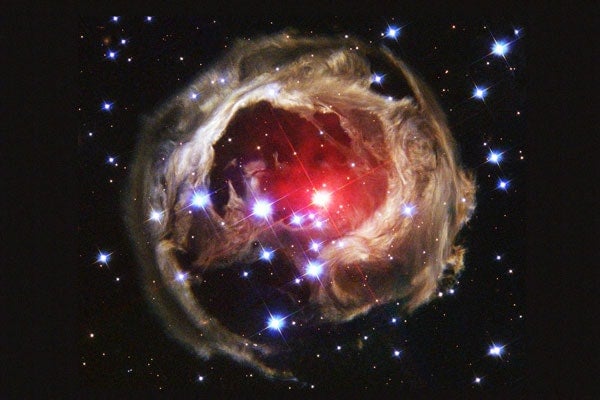
The end of the world as we know it
Published: November 30, 2012
According to many Internet soothsayers and doomsday book authors, the world comes to an end Dec. 21, 2012.
The reasons cited for this catastrophic conclusion vary. Some say it will occur when the Earth’s magnetic field flips 180°, or the planet Nibiru collides with our world. Others expect an alignment of the Solar System and the plane of the Milky Way Galaxy to unleash devastating forces.
There’s never been a shortage of apocalypse scenarios. But sometimes what's in short supply are people explaining why there is nothing to fear.
 Kelly Lepo has been talking to audiences about the 2012 doomsday phenomenon since 2010. Lepo is a PhD candidate in the Department of Astronomy & Astrophysics at the University of Toronto. Her studies and research focus on white dwarf stars and supernovas.
Kelly Lepo has been talking to audiences about the 2012 doomsday phenomenon since 2010. Lepo is a PhD candidate in the Department of Astronomy & Astrophysics at the University of Toronto. Her studies and research focus on white dwarf stars and supernovas.
“I love getting people excited about science, and I love debunking pseudoscience,” Lepo says. “And I remember watching a TV show that mentioned doomsday ‘galactic alignments’ and I didn’t know what that meant. So I started doing some research into these ideas, and turned that into a talk explaining that the world wasn’t coming to an end any time soon.”
In her public talks, Lepo sorts the science from the pseudoscience, and explains why you should go ahead and renew that insurance policy.
“This doomsday is no different from previous ones," says Lepo. "End of the world prophecies have been around for centuries. The current form is a mix of new age beliefs and misconceptions about the Maya calendar.”
So, should we worry about Planet Nibiru?
“If there is a planet poised to strike the Earth on December 21st," says Lepo, "it would have to be very close to us right now—close enough that it would be one of the brightest objects in the night sky. Obviously, there’s no such object.”
And her advice on making plans for 2013?
“Despite all the doomsday predictions that we won’t make it past December 21st, I’m still applying for jobs for next year.”
Lepo’s next public talk is titled, “2012: The Science and Pseudoscience of the Apocalypse” and takes place Dec. 6 at the Bahen Centre, University of Toronto. For more details, visit the events page of the Graduate Astronomy Students Association website.



